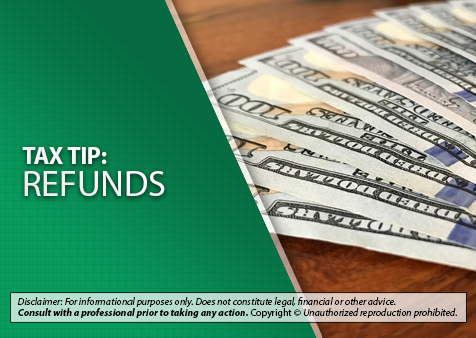What Are Refundable Tax Credits?
Refundable tax credits reduce your tax bill, and you may qualify even if you don’t owe any taxes for a refund.
What’s a tax credit?
Tax credits are not to be confused with tax deductions, which also help to reduce your tax liability. A deduction reduces your taxable income — that is, the amount of money subject to income tax. So if you earned $50,000 last year and qualified for $15,000 in deductions, you’d only pay taxes on the remaining $35,000. Tax credits, on the other hand, directly reduce your tax bill. So if you owe $5,000 in taxes for the year, but you receive $2,000 in credits, you’ll only pay $3,000 in taxes. The government will refund you any excess it took from your paychecks throughout the year.
What’s a refundable tax credit?
Most tax credits are nonrefundable. This means that they can reduce your tax bill to zero, but the government won’t credit you for any extra credits. Refundable tax credits can reduce your tax bill below zero. If your total refundable tax credits exceed your tax liability, the government will pay you the difference. Say your tax bill is $5,000 for the year and you qualify for $6,000 in refundable tax credits. The government will now give you back all the income tax it took from your paychecks, plus an extra $1,000.
This means that you can get a tax refund even if you don’t owe any taxes or aren’t required to file a tax return for the year. But you must file a return in order to claim any refundable tax credits you qualify for. Refundable tax credits are calculated after your tax deductions and nonrefundable credits to ensure you get the largest return possible.
Common refundable tax credits include:
- American opportunity tax credit. Available to filers who paid qualified higher education expenses. …
- Earned income tax credit. Paid to eligible moderate- and low-income working taxpayers.
- Child tax credit. …
- Premium tax credit



